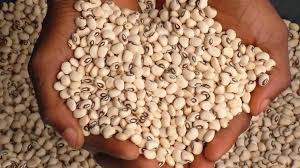Madam Flora Christine Amagloh, a Food Scientist at the Council for Scientific and Industrial Research – Savannah Agricultural Research Institute (CSIR-SARI), has said that the Pod Borer Resistant (PBR) cowpea is nutritionally the same as the conventional Songotra cowpea variety.
Speaking at a New Media workshop in Accra organised by the Open Forum on Agricultural Biotechnology (OFAB) Ghana Chapter, Madam Amagloh explained that the genetic modification applied in developing the PBR cowpea was not intended to change its nutritional composition. She said extensive analysis comparing both varieties revealed no significant differences in their macro and micronutrient content.
The workshop, which brought together members of the New Media Association of Ghana, including bloggers and social media influencers, focused on the role of biotechnology in strengthening food security and supporting smallholder farmers across the country.
Madam Amagloh added that beyond laboratory tests, sensory evaluations were carried out to test differences in taste, appearance, aroma, texture, and general acceptability. Dishes such as waakye, kose, and tubani were prepared using both varieties, and participants agreed that there were no noticeable differences between the PBR cowpea and Songotra.
She explained that the decision to involve social media influencers was deliberate because of the misconceptions about genetically modified (GM) foods on online platforms. She urged the participants to use their reach to communicate accurate information about the technology to the public.
“We want influencers to grasp the truth behind GM, because there are so many perceptions and people peddling lies about GM foods,” she said. She further clarified that people already allergic to cowpea would still react the same way, since the GM cowpea was not different from the conventional beans in that regard.
Mr. Enoch Ilori, Project Officer of OFAB Ghana, said the engagement was focused on educating participants about the PBR cowpea developed by CSIR-SARI. He noted that OFAB served as a bridge between scientists and the public, creating opportunities to understand biotechnology better and its benefits for Ghanaians, particularly farmers.
He stressed that the workshop was aimed at equipping influencers and bloggers with accurate information to counter misinformation and disinformation about GM crops. According to him, the content shared by social media voices would play an important role in shaping public understanding of biotechnology.
Also speaking, Mr. Jibriel Suliah, Secretary of the New Media Association of Ghana, admitted that before the workshop, many bloggers believed that GMOs involved injecting substances into fruits and vegetables to make them ripen unnaturally, which they thought was harmful to health.
He explained that after learning from scientists at the session, they gained a clearer understanding of genetic modification, realising that GMOs were developed through rigorous research with the aim of providing safe and healthy food.
“As a result, I am committed to using my platform to educate my audience and followers on social media, helping to correct the misconceptions surrounding biotechnology,” he said. He added that his colleagues in the association also gained valuable knowledge and would contribute to changing public perceptions about GM foods in Ghana.
The CSIR-SARI developed the PBR cowpea to resist the destructive pod borer pest, which has been a major threat to cowpea production across West Africa. The development is expected to boost food security, reduce pesticide use, and support farmers’ livelihoods in Ghana and beyond.
